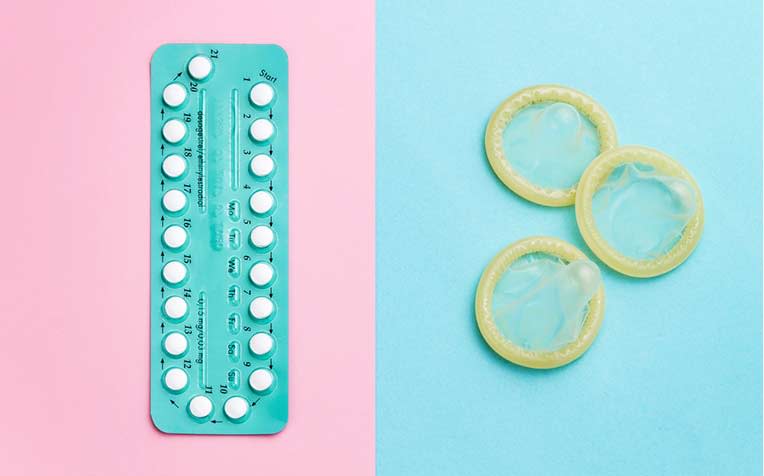Contraception Myths You Thought Were True

If you had used contraception during your younger days, it would be difficult for you to get pregnant when you want to start a family. This is one of the common misconceptions people have about contraception. Doctors from the Department of Obstetrics & Gynaecology at Singapore General Hospital (SGH), a member of the SingHealth group, help set the record straight on this and other contraception myths. (iStock photo)
Myth 1: If I used contraception when I was younger, it will be difficult for me to get pregnant when I want to start a family.
Some methods of contraception take longer to reverse after they have been stopped but all methods are reversible. This myth probably arose because some couples might have pre-existing fertility issues which prevented them from getting pregnant even after they had stopped using contraception.
Related article: 10 Ways men can improve sperm count and quality
Myth 2: Sexual intercourse during a menstrual period will never lead to pregnancy.
Never say never! There are documented pregnancies from sexual intercourse on every single day of the menstrual cycle. Some light bleeding is common during ovulation and can be mistaken for a period. The rhythm method of contraception (which attempts to calculate the "safe" period for intercourse) can be effective in women with regular cycles and useful for couples who can't use other methods due to religious constraints. But the overall failure rate can reach 25 per cent, probably because ovulation can occur earlier or later than expected.
Myth 3: If I get pregnant while using contraception, my baby will be abnormal.
Drugs which can harm unborn babies are not used as contraceptives. Of course, once pregnancy is diagnosed, women should stop the contraceptive and be counselled on whether they wish to proceed with the pregnancy. In the case of pregnancy with an intrauterine contraceptive device in the uterus, removal of the device reduces the risk of miscarriage and often allows the pregnancy to progress.
Related article: Want to have a healthy baby? Our O&G and dietitian offer tips
Myth 4: I don't need to use any contraception as I am breastfeeding.
Breastfeeding does reduce the frequency of ovulation but even women who are exclusively breastfeeding ovulate occasionally. As an exclusive method of contraception, breastfeeding is an unreliable form of birth control.
Myth 5: If I've had unprotected sexual intercourse (without using any contraception), nothing can be done to prevent pregnancy.
Emergency contraception is up to 99 per cent effective in preventing a pregnancy after unprotected sex. There are pills which can be taken up to 72 hours after unprotected sexual intercourse. A copper intrauterine contraceptive device is also an effective method and can be used up to five days after sex. Visit your family doctor or gynaecologist as soon as possible after engaging in unprotected sex if you wish to use emergency contraception.
Related article: Contraception after pregnancy, what are the options?
--
Articles on HealthXchange.sg are meant for informational purposes only and cannot replace professional surgical, medical or health advice, examination, diagnosis or treatment.


